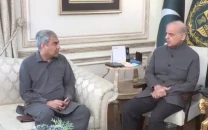Rubbish bag fillers
It is said that one way to turn a state into a nation is to write its history (true history)

All nation-states when they form, they imagine a past and what this past does to them is that it props up people’s sense of identity and a sense of themselves as they can relate to something in the past about which they can be proud of and thus become better and better. It is said that one way to turn a state into a nation is to write its history (true history). In essence, history teaches us how to recognise and learn from our mistakes and how best to make the right choices and basing on this awareness and lessons from the past learn to survive and sustain ourselves as a nation and as a society much better. So, with this in context, would it be right to assume that when a nation performs poorly it has got something to do with its history? Shouldn’t the rubbish bag that a nation carries on its shoulder and which is filled with hatreds, prejudices, myths and prophesies be emptied from time to time? Who are the fillers of such rubbish bags? And if we cannot condemn, convict or punish these fillers of our national rubbish bag in the past, is it not fair to assume that we as a nation will never be able to punish our existing ‘rubbish bag fillers’ as well.
There are two ways one can make an effort to alter the behavior of a nation-state. One is to learn lessons from your own history; and two, learn pertinent lessons from the history of other nations. Our Prime Minister is obsessed with Chinese history and keeps telling us that we can learn from it a lot. I agree, but before stating what we can learn from the Chinese, let’s peep in our history.
If the history of Pakistan can be divided into seven decades, we will realise that the problems of one decade were passed on to the second and then to the third and so on. Too weak to address our fundamental problems, the state carried the burden of more and more problems that accumulated over the decades. There were many rubbish bag fillers that kept filling our nations rubbish bag. Many came and went but instead of emptying, it added their part of the rubbish in it. Leaders are creators of history both good and bad. But what is wrong with our leaders? Why doing something good eluded them so repeatedly?
Look at the way we respond when a process of accountability is initiated against us. Look at this current political scenario in which how a breakaway political group was formed within the ruling party to blackmail own party leadership and force it to compromise on the process of accountability. This tells me that there is something inherently wrong with our political culture and our beliefs and the lack of dignity and pride that we demonstrate. This can hardly be associated with the dignity and pride demonstrated by people of any other self-respecting nation. These are actually the small little stories that combine together with resulting events that makes our history — a history filled with lack of individual and national credibility. And no wonder both a moral domestic leadership as well as the outside world is left frustrated, surprised and dumbfounded in how to deal with some of the mediocre choices that we make which only harm our national interests and drag us rearward and away from achieving our national growth, success and prosperity.
What about learning something from the legends, folklores and traditions — something as phenomenal as national betrayal and as moving as riches-to-rags stories, like of the Mughal Empire. The story of betrayal is the folklore from our history of the young man Sirajud Daulah, the last independent Nawab of Bengal. The conqueror of Fort Williams, the Headquarters of East India Company in Calcutta, who was defeated in the Battle of Plassey by the British in 1757 because his general, Mir Jaffer, betrayed him. The end of the story of Sirajud Daula at the young age of 24 years in Bengal laid the foundation of the beginning of the story of East India Company’s rule in Bengal and later in entire India. ‘National betrayal’ is a lesson that none of us should ever forget. The riches-to-rags tale of Mughals is also a great reminder of what can happen to the accumulators of material wealth. In 1732 when Nadir Shah invaded India the Mughals-accumulated wealth of 348 years changed hands in a single moment. Our politics today is rich with stories of political betrayal and unending stories of corruption and accumulation of wealth. It offers little or no incentive to people to work hard for their personal and national benefit. The rubbish bag fillers have rubbished the minds of the people and thus the illiterate electorate is kept deliberately illiterate which is happy praising, admiring, clapping and voting a political elite to power which like the Mughals is very rich but is intellectually very ordinary and politically mediocre. Politics in Pakistan continues to stumble backwards because of Mir Jaffer-like intrigues. So, if we haven’t learnt from our own history what can we learn from China and its great leap forward from national mediocrity to national triumph?
What we can learn from China is Chinese defiance against imperialism(ours has to be defiance against political imperialism), shift to industrialisation, and the red guards attack on the ‘four olds’ — old customs, old habits, old ideas and old culture. The red guards marched across the mainland China and at great cost ensured the eradication of these ‘four olds’. We can also learn from its Cultural Revolution in which all books identified as anti-communist were burnt and destroyed. A revolution in which the rapid development of agriculture and industrial sectors took place in parallel and executing which over 1.5 million people died including landlords from whom land was taken over and given to common people. A price was paid to reconstruct the country and to bring it out of the ‘century of humiliation’. Are we ready to pay such a cost? Remolding, re-education and thought reform were the foundational ingredients of Chinese revolution.
What remolding, re-education and thought reform have we imagined for introduction in our society? What to talk of thought reform, ours been a history of thoughtless leadership that only filled the national rubbish bag — leaders that have made personal fortunes, betrayed the trust that this nation posed in them; and while theirs is a story of rags to riches, the nation’s story has unfortunately been of mounting debts and of riches to rags. The biggest lesson that history teaches us is that we don’t learn from history — both own as well as the Chinese.














COMMENTS
Comments are moderated and generally will be posted if they are on-topic and not abusive.
For more information, please see our Comments FAQ